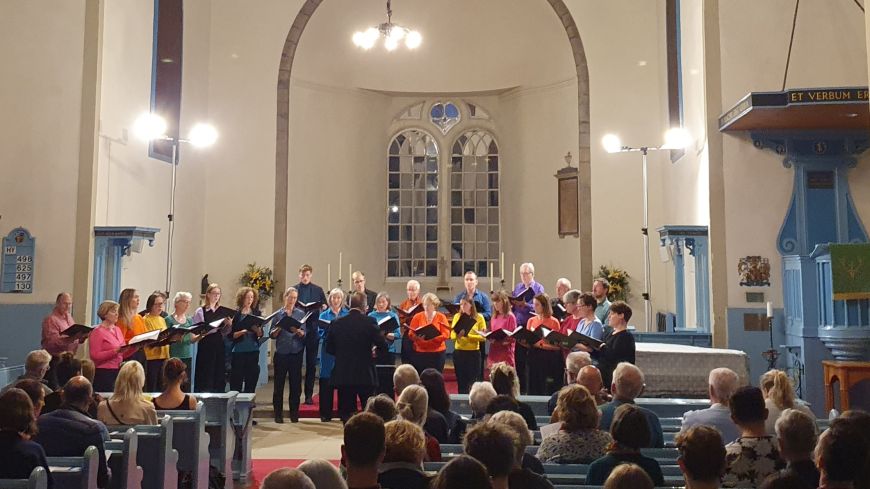
The programme for the concert celebrated the works of LGBTQ+ composers and allies.
It was an incredibly stirring performance, exploring themes such as being closeted and coming out, acceptance and identity, protest and persecution – but, pre-eminently, love.
Both of the opening works were so moving by virtue of their emphasis on the power of silence – in “Softly”, we ‘heard’ a non-vocal work whereby the choir used their breath to recreate a moment in the composer’s life: a conversation with himself about accepting his queer identity. What came across was something about ‘discovering meaning in the quiet’ – when text won’t suffice, and music must communicate what words can’t convey.
The piece composed by the extraordinary Dame Ethel Smith (whose compositions are recently enjoying renewed popularity) reawakened us to a sense of beauty oft hid – the control the choir demonstrated within a range of dynamics was really impressive.
The ‘Five Spirituals’ (from Tippett’s famous oratorio “A Child of our Time”) articulated the voice of hope from a people oppressed – though “Steal Away” is nowadays a popular hymn tune, it is rare to hear it sung with such deep expressiveness and engagement.
Ian Sutherland’s “Orphic Murmerations” was especially composed for this performance. It was a demanding piece and required a lot from the singers. Exploring the natural dusk spectacle, as starlings return to their roosts, we were confronted with the conundrum about nature’s wonder and simplicity, and how that then interfaces with our own longing for recognition, meaning and identity. The piece spoke of our interwovenness with everyone – and everything – around us.
The harmonies in this performance were jaw-dropping. But what made this exceptional was the singers’ connection with the songs being sung – it is one thing just to sing music particularly well, but heartfelt commitment can’t be manufactured. The audience were clearly touched by the music performed – but, more than that, it seemed to help unlock some emotional doors.
The performance finished at 10.00pm.
Choral Pride, Tuesday 13th August, Canongate Kirk

